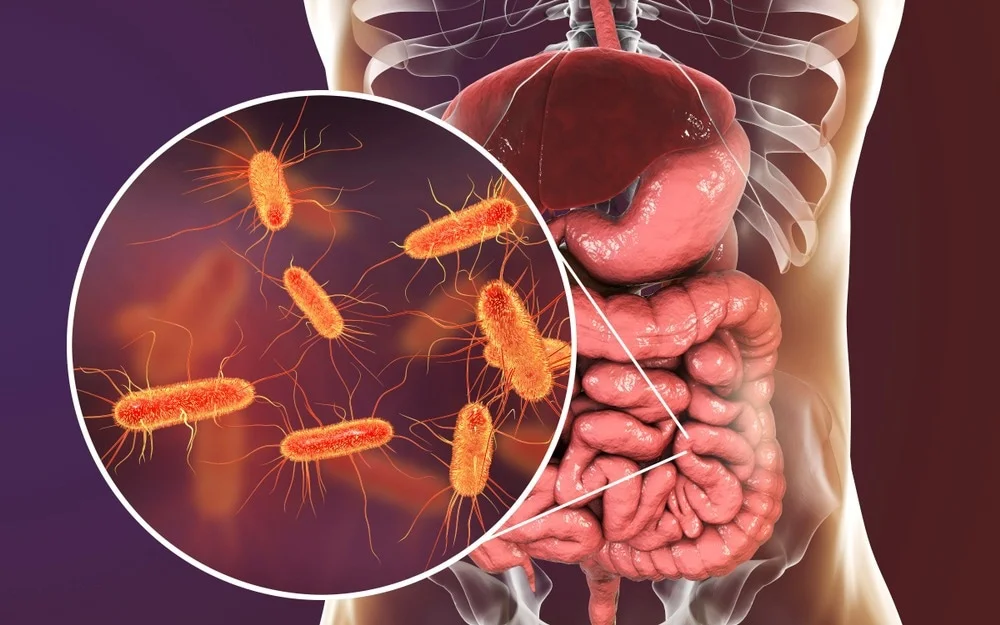Gut Health and Its Connection to Stress: A Holistic Approach
Emerging research has revealed a profound link between gut health and stress, highlighting the gut-brain axis as a key player in overall well-being. This connection underscores the importance of maintaining a healthy gut for managing stress and improving both mental and physical health. With growing awareness, probiotics, prebiotics, and fermented foods are gaining traction as effective tools for promoting gut health.
The Gut-Brain Axis: A Two-Way Communication System
The gut-brain axis refers to the bidirectional communication between the gastrointestinal tract and the brain. This system relies on a network of nerves, hormones, and immune signals to regulate bodily functions. Stress can disrupt this connection, leading to digestive issues, while poor gut health can exacerbate stress levels, creating a cyclical impact on well-being.
How Stress Affects Gut Health
Stress negatively impacts gut health by altering the composition of the gut microbiome, the community of microorganisms in the digestive tract. Chronic stress can reduce beneficial bacteria, increase harmful bacteria, and weaken the gut lining, leading to inflammation and gastrointestinal disorders such as irritable bowel syndrome (IBS).
The Role of Gut Microbiota in Stress Regulation
Gut microbiota play a crucial role in modulating stress responses. Beneficial bacteria produce neurotransmitters like serotonin, often referred to as the “happiness hormone,” which influences mood and emotional regulation. An imbalance in the gut microbiome can hinder the production of these chemicals, contributing to heightened stress and anxiety.
Probiotics: Supporting Gut Health and Stress Relief
Probiotics, live beneficial bacteria, are increasingly recognized for their role in promoting gut health and reducing stress. Strains like Lactobacillus and Bifidobacterium have been shown to improve gut integrity and enhance mood by regulating the production of stress-related hormones. Probiotic-rich foods such as yogurt, kefir, and sauerkraut are easy additions to a balanced diet.
The Benefits of Prebiotics for Mental Health
Prebiotics, non-digestible fibers that feed beneficial gut bacteria, are equally important in supporting the gut-brain connection. Foods like bananas, garlic, onions, and asparagus contain prebiotics that help maintain a healthy microbiome, indirectly contributing to better stress management and emotional well-being.
Fermented Foods: A Natural Stress-Relief Strategy
Fermented foods, such as kimchi, miso, and kombucha, are packed with probiotics and other bioactive compounds that enhance gut health. Regular consumption of fermented foods has been associated with reduced inflammation, improved digestion, and lower stress levels, making them a valuable addition to a stress-relief diet.
The Impact of Diet on the Gut-Brain Axis
Diet plays a critical role in maintaining a healthy gut-brain connection. A balanced diet rich in fiber, whole grains, lean protein, and healthy fats supports a diverse microbiome, which is essential for optimal mental and physical health. Avoiding processed foods and excessive sugar also helps prevent microbiome imbalances that can aggravate stress.
Stress Reduction Through Gut Health Improvement
Improving gut health is a proactive way to manage stress. Incorporating gut-friendly foods, staying hydrated, and practicing mindful eating all contribute to a healthier digestive system. These habits not only improve gut function but also promote a sense of calm and resilience in the face of stress.
The Role of Supplements in Gut and Stress Management
For individuals with significant gut imbalances, supplements like probiotics and prebiotics can provide additional support. These supplements help restore microbiome diversity, strengthen the gut lining, and regulate stress-related hormonal activity, offering a comprehensive approach to gut and stress health.
Exercise and Its Dual Benefits for Gut and Stress
Regular physical activity benefits both gut health and stress management. Exercise stimulates gut motility and promotes the growth of beneficial bacteria while reducing cortisol levels, the hormone associated with stress. Activities like yoga and walking combine physical movement with relaxation, enhancing their impact on the gut-brain axis.
Sleep and Its Role in Gut Health and Stress
Quality sleep is essential for maintaining gut health and managing stress. Sleep deprivation disrupts the gut microbiome and impairs stress resilience. Establishing a consistent sleep routine and avoiding stimulants like caffeine before bedtime can support both gut and mental health.
Stress Management Techniques to Support Gut Health
In addition to dietary changes, stress management techniques such as mindfulness meditation, deep breathing, and progressive muscle relaxation can improve gut health. These practices reduce the physiological effects of stress, allowing the gut-brain axis to function optimally.
Emerging Research and Future Implications
The field of gut-brain research is rapidly evolving, with studies exploring new ways to harness the microbiome for mental health benefits. Advances in personalized nutrition and microbiome testing may soon provide tailored solutions for individuals seeking to optimize gut health and manage stress effectively.
Conclusion: A Holistic Path to Well-Being
The connection between gut health and stress highlights the importance of a holistic approach to wellness. By prioritizing gut-friendly foods, adopting healthy lifestyle habits, and practicing stress management, individuals can enhance their overall well-being. As research continues to uncover the intricacies of the gut-brain axis, the role of gut health in stress management will remain a cornerstone of modern wellness practices.

































